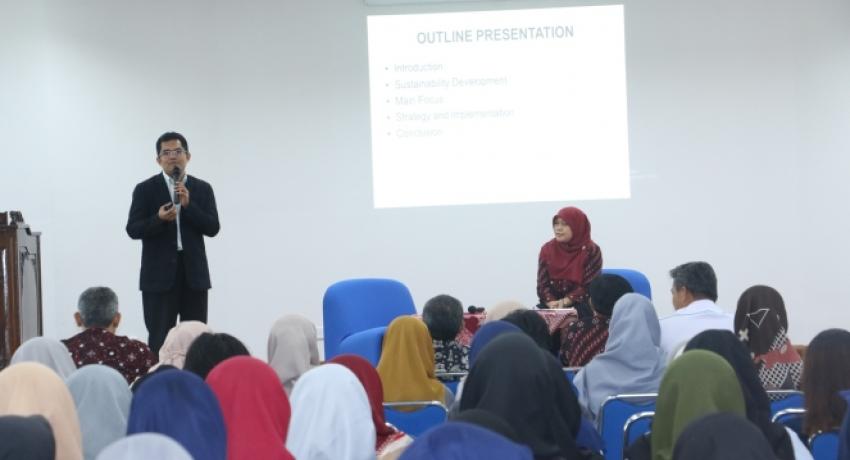The Department of Public Administration, Faculty of Social Sciences, Universitas Negeri Yogyakarta organized a Public Lecture for Public Administration students with the theme “Challenges of South East Asian Countries to Achieve Sustainability Development”. Assoc. Prof. Dr. Ahmad Zubir Ibrahim from the School of Government, Universiti Utara Malaysia (UUM) was invited to give a lecture at the hall room of IsDB building of Faculty of Social Sciences. The lecture was also attended by the Dean of Faculty of Social Sciences, Head of Department of Public Administration, Head of Faculty of Social Sciences International Affairs Unit and several lecturers from Public Administration.
The Dean of Faculty of Social Sciences, Dr. Suhadi Purwantara, M.Sc. in his remark encouraged all students to improve their international insights and experiences. "As a student, you must improve your international insight. You must aim to continue your master or doctoral degree abroad to understand the world,” he explained.
Ahmad Zubir Ibrahim in his presentation explained that the SDGs are a set of universally applicable goals that balance the three dimensions of sustainable development namely social, environmental and economic. The main target of SDGs in 2030 includes 5 Ps, namely People, Planet, Prosperity, Peace, and Partnership. People related to the welfare of all humans. The planet focuses on protecting the earth's ecosystems. Prosperity is associated with sustainable economic and technological growth. Peace involves efforts to maintain peace. Partnership involves increasing international cooperation. "These five aspects are interdependent with each other so the SDGs require integrated thinking and approaches to achieve their goals," he said.
Furthermore, the Deputy Dean School of Government of UUM highlighted poverty which was one of the main targets in the SDGs. "10% of the world's population still lives on the poverty line and is struggling to meet the most basic needs such as health, education, and so on. Poverty is caused by many factors including unemployment, and vulnerability to disasters, diseases, and other phenomena that cause people to become less productive.
"Other factors that contribute to increasing poverty are lack of food with adequate nutrition, poor infant feeding practices, inadequate clean water and sanitation, and limited agricultural crops" he added (Eko; Tj.Lak)





